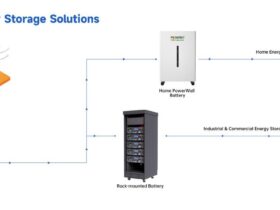Computing technology is rapidly advancing, and new developments in processing power, clock speed, and core counts are emerging every day. To understand what makes a CPU fast, it is crucial to examine these factors, as well as other important metrics like instructions per cycle and cache memory. In this article, we will delve into the details of what makes a fast CPU and what you need to know to determine the right processor for your needs.
Processing Power and Clock Speed
The two most basic specifications to consider when choosing a CPU are processing power and clock speed. Processing power, or the number of transistors on a CPU, is a measure of the device’s complexity and ability to process multiple tasks simultaneously. Clock speed, on the other hand, is the number of cycles per second that a CPU can perform. The higher the clock speed, the more cycles a CPU can perform in a given time frame.
It is important to note that higher processing power and clock speed do not always equate to a faster CPU. Other factors such as instructions per cycle and cache memory also play a significant role in determining a CPU’s overall performance.
Instructions per Cycle
Instructions per cycle (IPC) refers to the number of instructions a CPU can execute in a single clock cycle. A CPU with a higher IPC can process more instructions in a shorter amount of time, resulting in faster performance. The IPC of a CPU can vary depending on its architecture, core count, and other factors.
Cache Memory
Cache memory is a type of memory that is located closer to the CPU and is used to store frequently accessed data. This allows the CPU to access the data faster, as it does not have to go through the longer route of fetching data from the main memory. The larger the cache memory, the more data the CPU can store for quick access, leading to faster performance.
Measuring CPU Performance
To determine the performance of a CPU, you can use various benchmarking tools like CPU Z download. CPU-Z provides detailed information on a CPU’s clock speed, core count, cache memory, and more. It also provides performance scores based on real-world tasks, giving you a better idea of how the CPU will perform in different scenarios.
Core Count
The core count of a CPU refers to the number of cores it has. Cores are independent processing units that can perform separate tasks simultaneously. The more cores a CPU has, the more tasks it can handle at once, resulting in improved performance.
Choosing the Right Processor
When choosing a CPU, it is important to consider the tasks you will be performing and the level of performance you require. For general computing tasks like web browsing, office work, and casual gaming, a CPU with a moderate clock speed and core count should suffice. For more demanding tasks like video editing, 3D rendering, and gaming at high resolutions, you will need a CPU with a higher clock speed, core count, and processing power.
How CPU-Z Can Help with CPU Selection
CPU-Z is a popular benchmarking tool that provides detailed information about your CPU, including its clock speed, core count, cache memory, and more. It also provides performance scores based on real-world tasks, such as video rendering, gaming, and more. This information can be very helpful in choosing the right CPU for your needs, as you can see how the different processors compare in terms of performance.
One of the key benefits of Cpuid CPU Z is that it provides you with accurate and up-to-date information about your CPU. This information can be especially valuable when you are considering upgrading your system, as it can help you determine the most suitable processor for your needs.
Another benefit of CPU-Z is that it provides performance scores based on real-world tasks, allowing you to see how the different processors perform in actual use cases. This can be a valuable tool when choosing a CPU, as it gives you a better idea of how the processor will perform in different scenarios.
Finally, CPU-Z is a simple and easy-to-use tool that requires no installation or setup. You can simply download the program, run it, and get detailed information about your CPU in just a few clicks.
Also Watch: HOW TO JAILBREAK iOS 15.7.3 A11-A9 iPHONE’S! Palera1n iOS 15 Jailbreak Full Tutorial
Final Thoughts
We have explored the factors that make a fast CPU, including processing power, clock speed, instructions per cycle, cache memory, and core count. We have also discussed how tools like CPU-Z can help you choose the right CPU for your needs. By considering all of these factors and using tools like CPU-Z, you can make an informed decision and ensure that you have the best possible computing experience.










Leave a Review